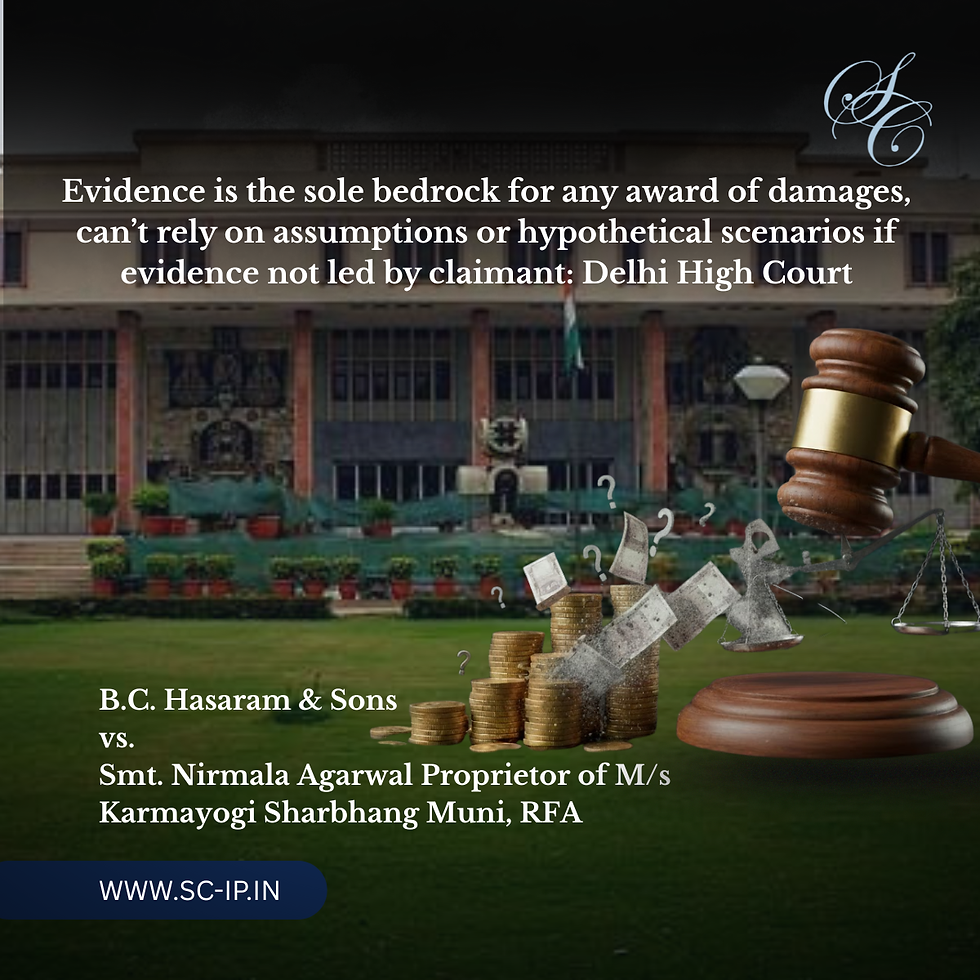Nokia vs Oppo, Standard Essential Patent, Patent Infringement, Delhi high court, 5G
- SC IP
- Jul 6, 2023
- 2 min read
“ The Delhi High Court, in its recent judgement, has directed Oppo to deposit 23% of the proceeds of their India sales as pro-tem deposit.
Nokia filed an appeal before the division bench of the Delhi High Court challenging the order passed by the learned Single Judge dismissing Nokia's application seeking interim deposit in a patent infringement suit of its three Standard Essential Patents ("SEP") against Oppo in India.
Nokia and Oppo executed a License Agreement in 2018 allowing Oppo to use some of Nokia's SEP excluding the use of 5G patents. After the expiration of the 2018 agreement, Oppo allegedly refused to execute a new License Agreement and had sold around 77 million 5G devices because of high demand in India without paying any royalty to Nokia. Subsequently, Nokia initiated 13 patent infringement proceedings against Oppo worldwide. Considering that 5G devices account for 52% of Oppo's sales in India, Nokia sought a pro-tem deposit from Oppo of a royalty amount. Oppo contented that any pro-tem arrangement is a conditional injunction order, and the four-fold test that applies for an injunction must also apply at the pro-tem stage.
The court clarified that to balance the equities in such cases, the Indian courts have the power to pass a pro-tem order without going into the merits. The Court further observed that a pro-tem security order is not linked to an injunction and highlighted that if Oppo does not make a pro-tem deposit, Nokia will suffer an irreparable loss as its patents will be used without the benefit of royalties. The Court also considered the four-fold test set by the single Judge as contrary to the law.
Nokia Technologies OY v. Guangdong Oppo Mobile Telecommunications Corpn. Ltd., FAO(OS) (COMM) 321/2022 & CM APPL. 53576-53579/2022 ”
#Patents #SEP #PatentInfrigment #Nokia #Oppo #Highcourt #India #5G #SCIP #lawupdate




Comments